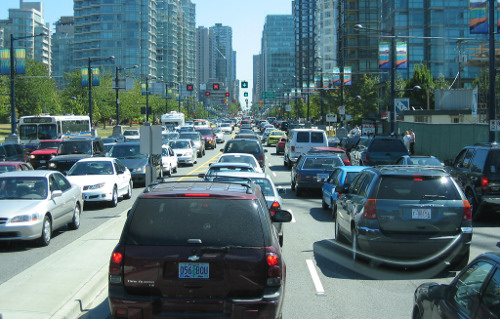SUBSCRIBE TO THE FREE NEWSLETTER
Becoming Cascadian
Cascadia is a new way of perceiving the region that stretches from Cape Mendocino, California north to Mount Logan, Alaska and east to nearly the Continental Divide. The concept is rooted in bio-regionalism, the belief that artificial national borders can hinder our understanding of a place. In an essay for The South Seattle Emerald, poet Paul Nelson writes about “Why You Should Become A Cascadian“:
“When we reframe the understanding of place as bioregion and not nation, we see that the straight lines drawn on maps were created by men serving political needs, not natural ones, and we allow ourselves a chance to better know that place. The founder of the Sōtō Zen school, Dōgen Zenji, is well known for the koan: “When you find the place where you are, practice begins.” For me, this means that we can’t be grounded human beings until we create real roots to a place. ”
Nelson goes on to talk about an upcoming retreat mixing bioregional awareness, meditation, and the writing of poetry. Called Becoming Cascadian, the weekend-long event in Seattle from Thursday, May 31 through Sunday, June 3 features free events open to the public, including a talk by poet and translator Andrew Schelling, Zen meditation, a tour of Kubota Gardens, and a reading by poets at Seattle’s Open Books.
For more info on the public and paid Becoming Cascadian retreat events, visit the Becoming Cascadian website.
Spokane criminalizes homelessness & Seattle debates it
According to the Spokesman-Review, the Spokane city council, in a 6-1 vote, passed a measure making it a misdemeanor to camp on city public land. The city hopes to use the ordinance to push the city’s increasing homeless population to use established shelters. Meanwhile, the Seattle Times reports on Seattle mayor Jenny Durkan’s dilemma: she wants to reduce homelessness, but is wary of the council’s proposed “head” tax that has Amazon riled up and would fund $75 million in new affordable housing and services for the homeless. This comes as a new study finds King County’s plan to reduce homelessness in greater Seattle is failing. And Crosscut interviews a Seattle University researcher on homeless policy who insist the city is going to have to make a choice between courage and comfort.
British Columbia drops greenhouse gas goals
CBC reports that British Columbia’s ruling NDP government has lowered targets for greenhouse gas emissions in the province set in 2007, blaming the previous Liberal government for failing to meet the targets. But the Green party criticized the current government’s support for LNG projects that hamper those goals. In related news, The Georgia Straight reports on Matthew Mackenzie’s new play Bears, which examines his First Nations roots, and the current controversy over pipelines in British Columbia.
Puget Sound tribe confronts the heroin crisis
At Seattle Globalist, read about how Washington’s Swinomish Tribe, based on the shores of western Puget Sound, is dealing with a crisis of heroin and opioid addiction among its youth. New programs include honest public talks with Indigenous students, and the opening of a health center with NARCAN overdose prevention kits.
New podcast on equity in the legal cannabis industry
Willamette Week has the story of Tiara Darnell, who’s based in Portland and has a new podcast dedicated to dealing with issues of racial equity and justice in Oregon’s legal pot business. “It seemed like the women who get the most traction are skinny white women who look really good smoking joints. That didn’t work for me.” For more on racial equity in Cascadia’s legal weed industry, read Matt Stangel’s feature in Cascadia Magazine.
Study finds farmed salmon infect wild Chinook
The Tyee reports on a new peer-reviewed study that finds that piscine orthoreovirus (PRV-1) commonly found in net-pen farmed salmon in British Columbia, spreads and causes disease in wild Chinook salmon. Meanwhile, The Georgia Straight cites a new poll that finds nearly 75 percent of BC residents want to ban net-pen salmon farms. And Hakai Magazine has an article on findings that gill nets cause much more damage to released fish than other methods.
New music from Vancouver band The Long War
KUOW reports on the new album “Landscapes,” by Vancouver folk-rock band The Long War. It’s a record that pays tribute to the natural world of western Canada, and you can listen to a track online called “Lake Louise.”
That’s all today’s news & culture from across Cascadia. –Andrew Engelson
Photo credit: traffic in Vancouver by Mark Woodbury CC BY-SA 2.0

